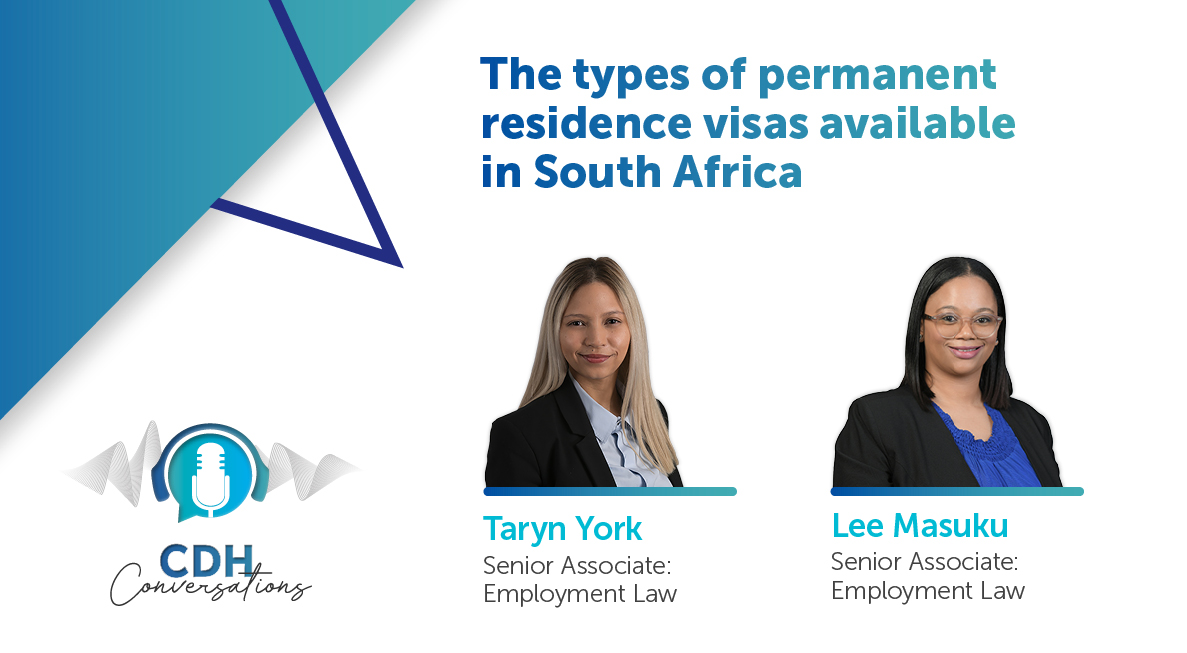Asylum seekers and special permit holders now eligible to apply for COVID-19 Social Relief of Distress Grant
However, only South African citizens, permanent residents or refugees registered with the Department of Home Affairs were eligible for these relief measures, including the special SRD grant. Asylum seekers and special permit holders were not eligible to apply for this much-needed relief. This resulted in many Non-Profit Organisations receiving increased requests for social & food assistance. The Scalabrini Centre of Cape Town (Scalabrini) confirmed that it had seen a surge in the number of clients calling for food assistance. It noted with concern that these numbers were much higher than the usual numbers seeking welfare assistance prior to the lockdown. Many of these were families with children who would usually have benefited from school feeding programmes. Lawyers for Human Rights also noted a similar trend and reported an increased number of up to 70 queries per 24-hour period for food assistance on their legal support hotline.
After attempts to engage with the relevant state parties were unsuccessful, Scalabrini launched an urgent application in the Pretoria High Court to declare the directions issued by Minister Lindiwe Zulu unconstitutional and unlawful to the extent that they exclude special permit holders and asylum seekers whose asylum seeker visas/permits are valid or were valid on 15 March 2020 from eligibility for the SRD grant.
In the application, Scalabrini highlighted that the exclusion of special permit holders and asylum seekers from accessing the SRD grant was arbitrary, unreasonable and irrational – violating asylum seekers’ and special permit holders’ right to equality, dignity and access to social security. Furthermore, many asylum seekers, whose visas expired during lockdown lost their employment, had their bank accounts frozen and were excluded from the majority of the governmental financial relief packages including food parcels as a 13-digit ID number was required to register.
On 18 June 2020, the Pretoria High Court found that the exclusion of asylum seekers and special permit holders from eligibility for the SRD grant was unlawful, unconstitutional and invalid. The court held that special permit holders and asylum seekers whose asylum seeker permits are or were valid on 15 March 2020 will be eligible to apply for the SRD grant.
Furthermore, the Court ordered that the Minister of Social Development had to determine within five days of the order the cost that will be incurred in extending the SRD grant, and a further five days after determining the cost to publish the amended directions to include asylum seekers and special permit holders for eligibility for the SRD grant.
Government admitted that the order would place strain on the Department of Social Development and add to the government’s financial burden - the cost estimate to increase the pool of eligible applicants for the SRD grant would be approximately R700 million. Economists also warned that it would increase the burden on the tax base as government was already spending R9 billion extra a month on SASSA grants, and that this addition would add about 2% more to payments.
Special permit holders and asylum seekers whose asylum seeker permits are or were valid on 15 March 2020 will be eligible to apply for the SRD grant subject to the same SASSA eligibility criteria namely, applicants cannot be receiving an income, any other form of grant, or any economic relief from the Unemployment Insurance Fund. Furthermore, an applicant’s documents must be valid or must have been valid at the start of the national state of disaster in order to be eligible to apply for the SRD grant.
All applications for the special SRD grant are to be made electronically through the following platforms:
WhatsApp on 082 046 8553
USSD number *134*7737#
Email: srd@sassa.gov.za
Call centre: 0800 60 10 100
Applicants may only apply once on one channel and may not use multiple channels to apply as SASSA will only process one application received from each applicant.
The Department of Home Affairs has also recently gazetted amended directions to extend the validity of permits for asylum seekers. In terms of these directions an asylum seeker permit lawfully issued/refugee status granted in terms of the Refugees Act, which expired from 15 March 2020, or is to expire or which status was to be withdrawn during the period of the national state of disaster is deemed to have been extended up to 31 July 2020. These directions provide much needed clarity after many asylum seekers’ permits expired during the state of disaster and those affected have been unable to extend same due to the refugee reception offices remaining closed. It also remains unclear to date when the reception offices will reopen.
The above judgment comes as welcome relief for an extremely vulnerable group of people, many of whom have been living in dire circumstances since the nationwide lockdown. The argument rings true that “the coronavirus knows no border and does not stop to ask for one’s nationality status.” But not all are celebrating the judgment. Many South Africans are of the view that the judgment is humane but are apprehensive about its full implications and how it will impact the limited funds allocated for the SRD grants.
The information and material published on this website is provided for general purposes only and does not constitute legal advice. We make every effort to ensure that the content is updated regularly and to offer the most current and accurate information. Please consult one of our lawyers on any specific legal problem or matter. We accept no responsibility for any loss or damage, whether direct or consequential, which may arise from reliance on the information contained in these pages. Please refer to our full terms and conditions. Copyright © 2026 Cliffe Dekker Hofmeyr. All rights reserved. For permission to reproduce an article or publication, please contact us cliffedekkerhofmeyr@cdhlegal.com.
Subscribe
We support our clients’ strategic and operational needs by offering innovative, integrated and high quality thought leadership. To stay up to date on the latest legal developments that may potentially impact your business, subscribe to our alerts, seminar and webinar invitations.
Subscribe




